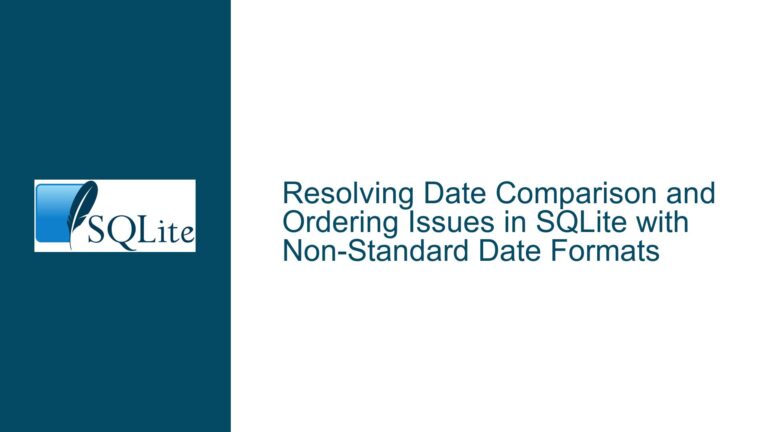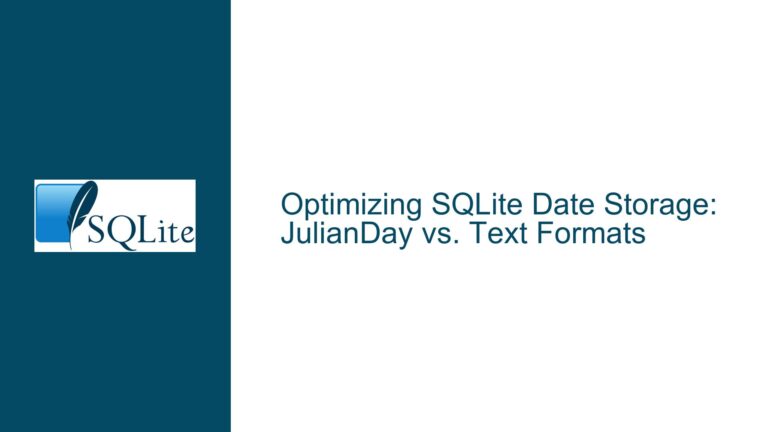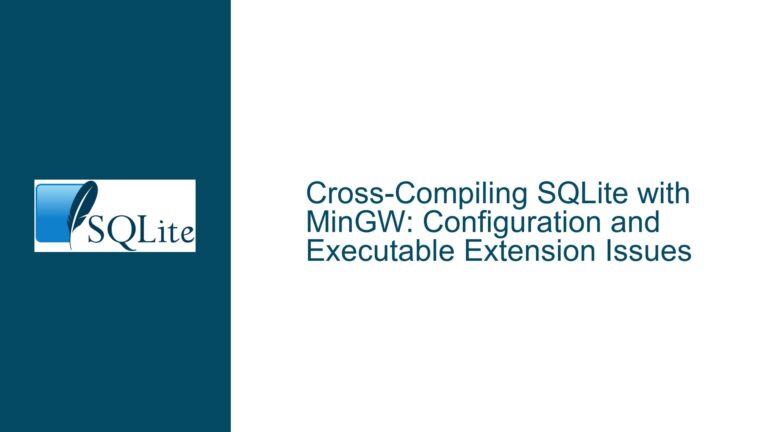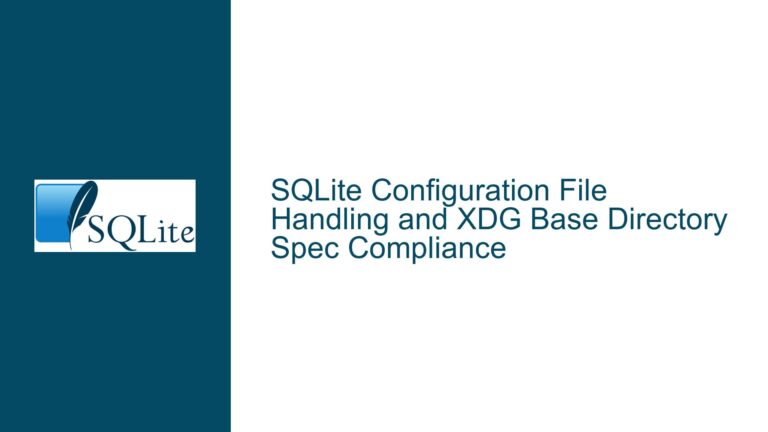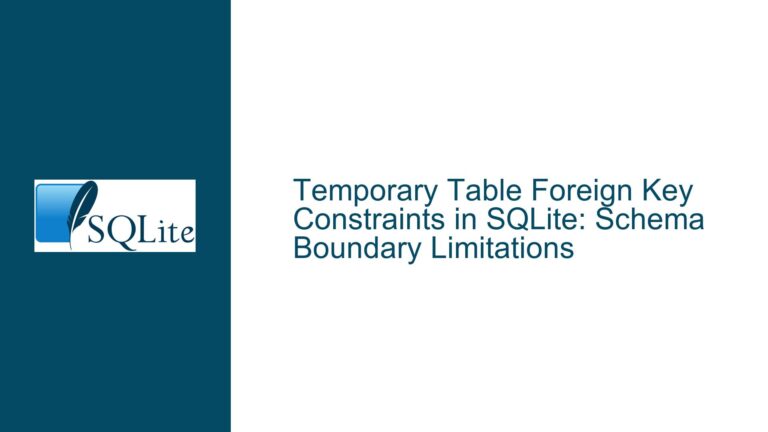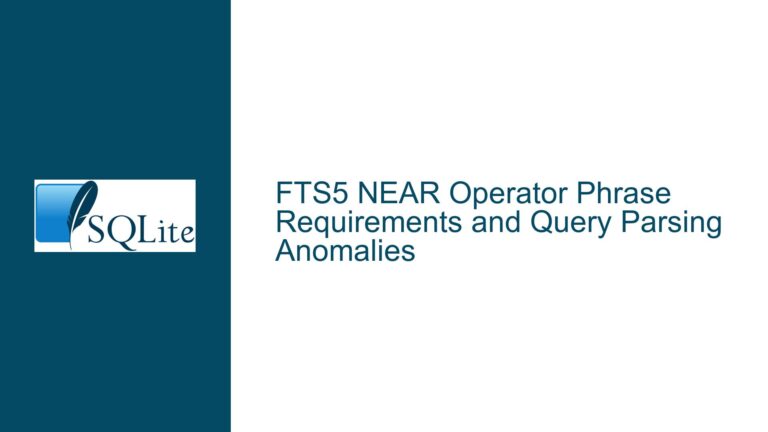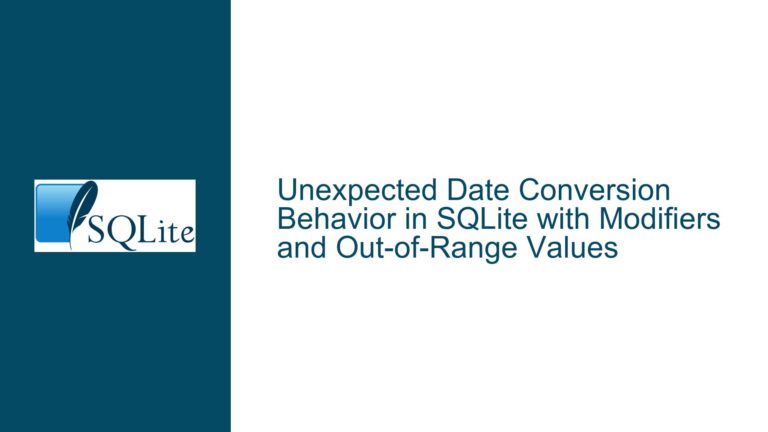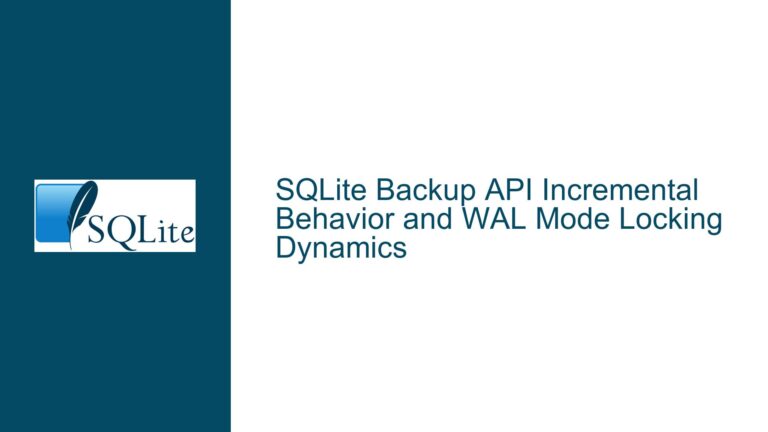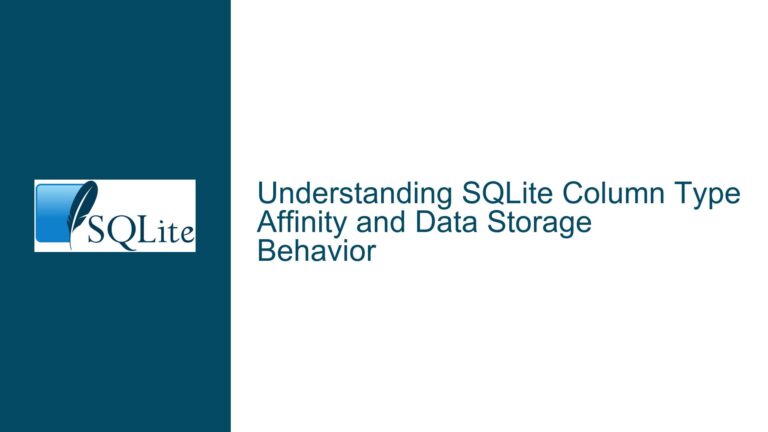Resolving Date Comparison and Ordering Issues in SQLite with Non-Standard Date Formats
Understanding and Fixing Date Comparison and Sorting Problems in SQLite Issue Overview: Date/Time Comparisons Fail Due to String Format and Storage Choices The core problem revolves around SQLite’s lack of a native DATE or DATETIME data type and the challenges this creates when storing and querying date/time values in non-standard formats. Users migrating from databases…
